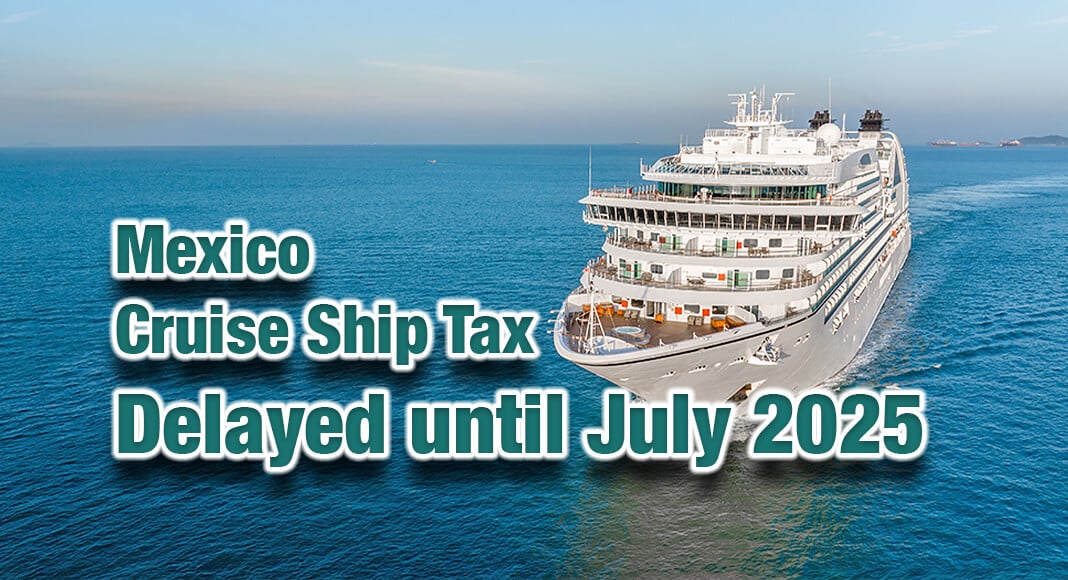Mexico Cruise Ship Tax Delayed until July 2025
Cruise Tax in Mexico Delayed: What It Means for Tourism and Coastal Communities

The Florida-Caribbean Cruise Association (FCCA) recently shared important news about a new tax on cruise passengers in Mexico. This Federal Law of Rights tax, originally planned for January 1, 2025, has now been delayed to July 1, 2025, after discussions with Mexican government officials. While this gives temporary relief to cruise companies and tourists, the FCCA warns that more action is needed to address the tax’s long-term effects on Mexico’s tourism, economy, and coastal communities.
What Is the New Tax?
The proposed tax will charge an extra $42 (about 860 Mexican pesos) per cruise passenger. This represents a 213% increase compared to the average fees at other Caribbean ports.
For example:
- A family of four visiting a Mexican port will pay an extra $168 in taxes, even if they only spend a few hours on land.
- Tourists entering Mexico by land for up to seven days are exempt from this tax, creating an uneven playing field.
The FCCA has raised concerns that these higher costs could discourage cruise visitors from choosing Mexico as a destination.
A Global Carbon Tax on Shipping is Coming, Says ABS Chairman and CEO
Economic Concerns
The FCCA estimates that even a 15% drop in cruise ship arrivals could erase any potential gains from the tax. With over 10 million cruise passengers expected in 2025, even a small decline in visitors could mean millions of dollars lost for local businesses.
Key impacts could include:
- Fewer earnings for tour operators, local shops, and restaurants.
- Reduced income for workers like taxi drivers, tour guides, and artisans.
- Coastal communities, especially in states like Chiapas, Guerrero, and Oaxaca, may face economic hardship if tourism decreases.
Industry Reactions
The Mexican Association of Cruises and other stakeholders have expressed serious concerns. They believe this tax could make Mexico less attractive to cruise companies, leading to fewer ship visits and reduced competitiveness in the global cruise market.
Michele Paige, CEO of the FCCA, acknowledged the Mexican government’s willingness to delay the tax but emphasized that the sudden removal of long-standing exemptions hurts the industry. She called for more open dialogue to find a balanced solution that supports both local communities and the tourism sector.
What’s Next?
The delay in implementing the cruise tax gives some breathing room, but the issue is far from resolved. Discussions between the Mexican government, cruise companies, and other stakeholders must continue to find ways to:
- Protect the livelihoods of local workers and businesses.
- Maintain Mexico’s position as a leading cruise destination.
- Keep cruise travel affordable for passengers.
